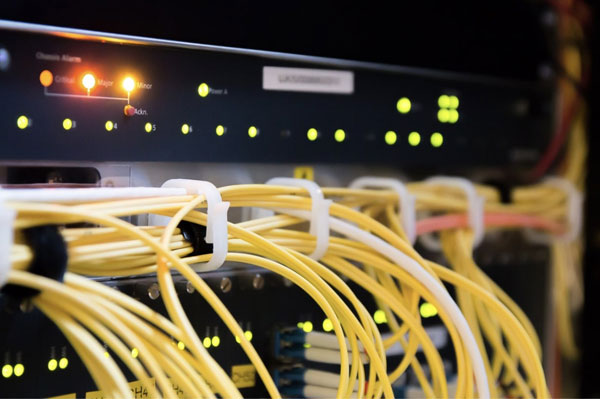Chinese hackers hack into US telecommunication firms, inducing rage from the US

[Image of a telecommunications network. Credit to Pixabay]
There has been a hacking of several major US telecommunications firms by a highly skilled group of Chinese hackers who were related to the Chinese government in early October 2024, which has set off alarms and indicated a burst of aggression from China.
The breach impacted critical corporations such as AT&T, Verizon and Lumen, provoking fears about the possible access to sensitive data from wiretap warrant requests to other confidential information.
The telecom providers form the backbone of US internet and phone communications, and this intrusion brings great concern to the US citizens and the country.
US investigators are still untangling the scope of the breach and early reports suggest the hackers are after national security information for the information to be provided to the Chinese government possibly.
Other members such as the FBI and other agencies are investigating the case; however, they have so far not commented on the compromised data.
In response to the allegations, the Chinese Embassy in Washington, DC dismissed the claims as false and that the hackers were not concerned with the Chinese government.
Embassy spokesperson Liu Pengyu dismissed the accusations as a “distortion of facts” and accused the US of using cybersecurity issues to fuel political tension with China.
Nevertheless, US officials have claimed that they are growing increasingly worried about China’s continued efforts to infiltrate all important aspects of the US infrastructure: from key infrastructure to access to sensitive national security data and shut down key services such as banks during crises.
In fact, reports have surfaced of earlier attacks from China on the US government agencies and industries such as defense and technology, which leads the US to believe that it is also China who has attacked the telecom industry this time.
Since the telecom industry is the most vulnerable industry, its hacking into the telecom industry has induced further rage.
The telecom industry serves as a vulnerable point due to the huge amount of sensitive communications data they process daily such as wiretap warrants, surveillance requests from the FBI, and user metadata.
Given the substantial volume of sensitive information held by telecom firms around national security, such a breach could have far-reaching consequences if hackers accessed any of this confidential information.
The companies targeted by the Chinese hackers are key providers of US communications infrastructure, raising concerns about the implications of this breach.
The hacker responsible for this breach known as Salt Typhoon has been identified as a Chinese state-sponsored group with a long history of targeting US interests.
The sophistication and persistence of this group have been noted by cybersecurity experts, who say that they infiltrated secure networks with enviable skill.
Microsoft and Google-owned cybersecurity firm Mandiant have been called in to help analyze the breach.
However, both companies have emphasized the sophistication of the hackers’ techniques, which involve long-term intrusion into the networks –possibly long enough to collect data for a lengthy time before being detected.
The breach’s strategic implications are of special concern to US officials.
In the event of a future conflict, China will have access to US telecom networks which could enable them to disrupt communications or spy on sensitive military and government operations.
This scenario also raised urgent questions about US cybersecurity defences’ resilience.
FBI Director Christopher Wray emphasized that the Chinese government-backed hackers vastly outnumber its cyber defence personnel, and he’s calling on the US to strengthen its cybersecurity measures.
This breach also spotlights the ongoing debate on weighing national security against the globalized nature of the internet, as protecting critical infrastructure becomes a top priority for policymakers.
This crisis has sparked diverse international reactions, with some people supporting US calls for international cooperation and others wary of tensions over China.
Tech companies call out stronger government-private sector collaboration, highlighting the need for better cyber defenses.

- Choi Sunwoo / Grade 10
- KIS Jeju

![THE HERALD STUDENT REPORTERS [US]](/assets/images/logo_student_us.png)
![THE HERALD STUDENT REPORTERS [Canada]](/assets/images/logo_student_ca.png)
